July 05, 2025
Dr. Radhika
Batra
Dr. Radhika Batra is the Founder, President of Every Infant Matters – fighting malnutrition in children and women, and advocating for maternal health, deworming, promotion of breastfeeding, immunization, and gender equality. Their work has saved 550,000+ malnourished children across India, Nigeria and the Philippines from irreversible blindness. She is a Pediatrician, Neonatologist & Public Health Expert.
One Line Life Lessons from Dr. Radhika
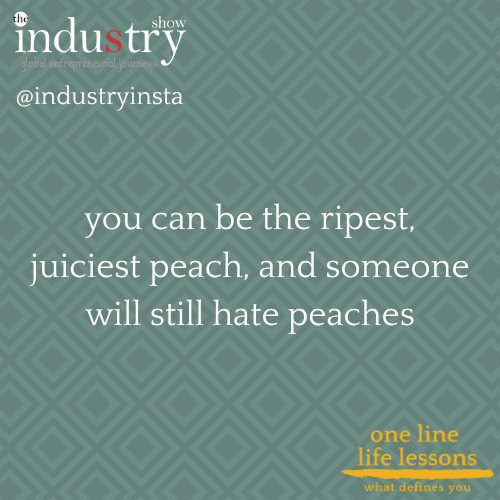
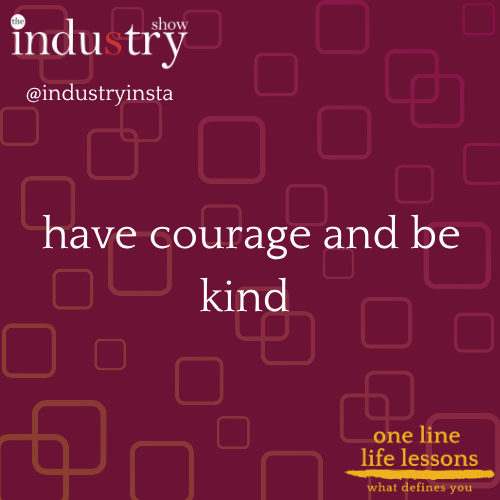
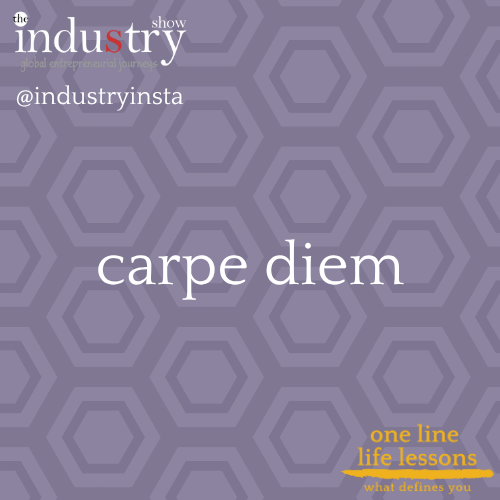
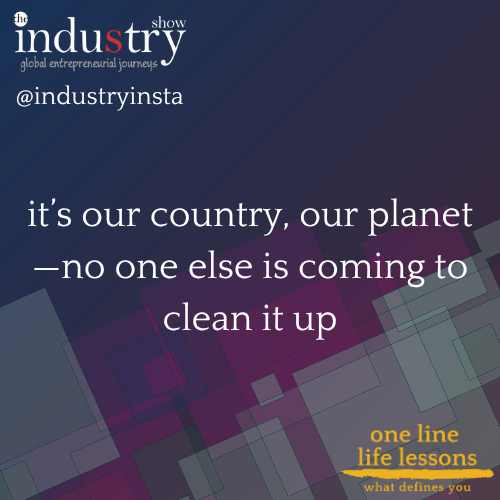
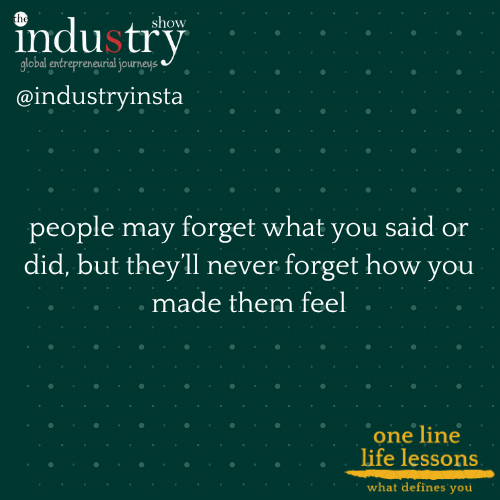
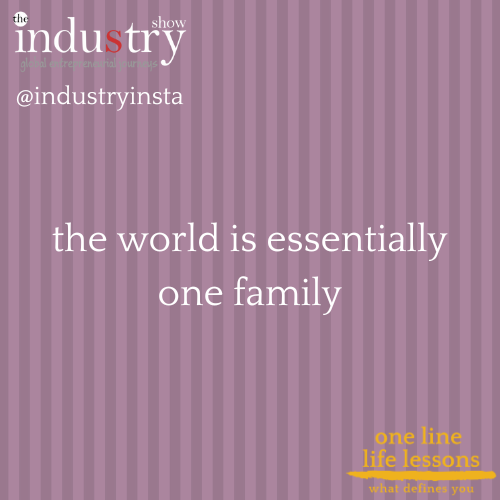
Episode Highlights
00:00 Introduction to the industry show and Dr. Radhika Batra.
00:21 Dr. Batra introduces herself as a neonatologist, pediatrician, and humanitarian. 01:37 Discussion of Every Infant Matters, its mission, vision, and current status.
04:41 Addressing the vicious cycle of malnutrition and associated challenges.
09:04 Impact of Every Infant Matters: saving 700,000 children from blindness.
10:25 Biggest challenge: last-mile delivery in remote communities.
13:44 Biggest opportunity: working at the intersection of SDGs and tackling health disparities.
16:41 Sharing moments of unexpected success and failure.
24:25 De-stressing activities and hobbies.
26:28 Sharing one-line life lessons.
Show Transcript
Transcript - Full Episode
[00:00:00] Nitin Bajaj
Hey everyone, welcome to the industry show. I’m your host Nitin Bajaj. And joining me today is Dr. Radhika Batra. Radhika, welcome on the show.
[00:00:09] Radhika Batra
Hi. Thank you so much for having me on the show. It’s a great honor and I just want to say hi to all your listeners and viewers before we get started.
[00:00:19] Nitin Bajaj
Great to have you here. And let’s get started with who is Radhika?
[00:00:26] Radhika Batra
So to introduce myself I usually just say one line and that is that my name is Dr. Radhika Batra. And why I prefer to use the prefix is because I feel like being a doctor is, has what has shaped my identity and what has led me to become the human that I am today. And aside from being a medical doctor in the field of neonatology and pediatrics, that basically means that I deal with the very small babies from 0 to 28 days and often the ones which are born preterm at less than nine months. And aside from that I run a non profit and of course we’ll be discussing more about the non profit later. So I like to think of myself as a humanitarian who wants to help people in need. I think that that is what I feel who is, you know, that’s who I am.
And I also am a very family oriented person. So I’m a wife, I’m a daughter and I’m a daughter in law. So yeah, that’s my family.
So that’s me.
[00:01:29] Nitin Bajaj
I love that and I agree with that definition and that purpose that you bring to the work you do. Let’s talk about Every Infant Matters. Tell us about the mission, the vision and most importantly, why did you start it and where is it today?
[00:01:50] Radhika Batra
So that’s okay, that’s like, I think that’s a three part question. So I’m gonna take it part by part. So Every Infant Matters is essentially the name of the non profit that I run and it’s registered in the United States and in India. And we basically the mission of the organization is to tackle the devastating consequences of severe malnutrition in the world in, in all infants and all children. And the vision, essentially the broad vision is that we don’t, I personally don’t want. And as an organization we are working towards this every day, every night, that no child should be left behind when it comes to health. And we want to give every child the right to a healthy life, which is essentially I think a very basic, fundamental human right to health.
And that’s what we want to ensure that every child has irrespective of their status in the society, the parents level of awareness, the amount of money that they have, the geography that they are staying in. You know, we are dealing with children in conflict ridden zones. We are dealing with children in difficult, cold, harsh climates, difficult geographies, hard to reach villages where the nearest hospital might be 150km away. So we don’t want these children to be neglected. We don’t want them to get anything less than what a child sitting in say New York or New Delhi is getting. So that is the essence. Ubiquitous access for every child in the world.
That is the long term vision. And if all goes well, we are a fairly new organization. We got registered in 2019. So it’s been six years into being a non profit organization, two and a half of which went into Covid. So I’ll come to that also. So, you know, essentially six years in, I’m happy to say that we have accomplished quite a bit given that it’s just been six years. And the first few years, as I’m sure the listeners, and I’m sure you also know that the first few hours, a lot about the admin side of things and setting up and you know, setting out as, and making a name and a visibility for yourself as an, as a humanitarian, nonprofit organization.
It really, you know, it all comes down to how much people know that you exist. And that eventually translates into funding which eventually translates into a lot of people being helped with that. So coming to where we are today, they happy to tell you that, you know, we’ve entered into this, I think in the last one, one and a half year we’ve realized that just tackling severe malnutrition is not the answer. Tackling the associated problems with malnutrition and breaking a vicious cycle of malnutrition is where the key lies. So I’m just gonna take a minute and explain what I mean by that. So essentially a teenage girl who starts her menstrual cycle and we’re talking about girls in remote villages where the food is essentially given to the boy, good food is given to the boy. Especially in a country like India and in, in the African continent as well.
This is a similar scenario because we are working in Nigeria, so we know this for a fact that the girls are often neglected. So this girl who’s already a nutritionally deprived girl, she enters into her teens and she starts menstruating. So she becomes anemic. And now this anemic is married at a very early age and she conceives with the first pregnancy at A fairly early age. So now throughout the pregnancy, the pregnancy in essence is a stress on the body. And the fetus in such a situation now acts as a parasite that is sucking up whatever little nutrition that girl had. So now the nutritional status worsens and the baby that is born is affected so severely that is often growth restricted at a low birth weight baby that is born. This low birth weight baby is then prone to severe acute malnutrition in the first five years of life, including severe nutritional deficiencies like that of vitamin A, which if not treated, can lead to irreversible permanent blindness in a child.
So just to take a second, just to pause and take a second and point out that the lack of nutrition up until this stage and the lack of good food in a child is leading a child blind. And mind you, this happens to half a million children of the world every single year. So half a million children, cumulatively every year, and half of those half a million after becoming blind, lose their life as well. So the sheer cumulative number of these children who are turning blind and then who are dying because we cannot give them proper food to eat is just, according to me, a travesty of justice. So that is what as an organization we try to tackle all of these spokes and all of these major key factors that are in this cycle of disease and disability. And that is what we try to tackle. Essentially the interventions lie around tackling it at the level of the teenage girl itself by using artificial intelligence and Internet of things based hemoglobinometer, which is non invasive.
You don’t prick the child, you don’t prick the little girl, you just make her put her finger in a machine and anemia is detected and it’s treated according to the level of anemia. If it’s very severe, she’s taken to the nearest hospital and she’s given supplements. So we treat that when she becomes pregnant. Later on, all the pregnant ladies in our areas of focus are given prenatal vitamins to make sure that their health during the pregnancy is sustained. As a result, the baby that is born is of a better weight, less chances of severe acute malnutrition. And then in the first five years of life, we supplement them with vitamin A and with other supplements so that their health is intact. And majorly our focus has been preventing blindness in children by giving them vitamin A, because we felt like it’s a very ignored area.
You know, a lot of the social sector has been focusing on hiv, on tuberculosis, on cancer. But this was a very glaring problem that I Saw in my medical residency because I worked in a, in a hospital which really had very high rates of malnutrition and high rates of vitamin A preventable blindness. So I felt like it’s just, and it’s just like two drops of vitamin A that can, that cost less than rupees fifty. That’s less than a dollar, less than a US dollar. The total cost of delivery included is around rupees fifty, not just the tablet. So for the rest, for less than the cost of a cup of tea, we can save a child’s life and we can save the child from going blind. So yeah, that’s what we do.
And in terms of where, what we’ve achieved, we’ve saved 7 lakh children from going blind in these six years in India, in Nigeria, in the Philippines. These have been our three key areas of focus and we’ve always tried to focus on the remotest areas where otherwise access to healthcare has been very, very poor or difficult.
[00:09:29] Nitin Bajaj
This is fascinating work. Congratulations and kudos to you and the team. 700,000 children impacting them, saving their eyesight, but also their lives. You put it so rightly that this is, you know, in this age and time, the fact that these things are even happening is a fail on our part as humanity.
[00:09:53] Radhika Batra
Yes.
[00:09:54] Nitin Bajaj
This is just amazing work that you’re doing now as you’re dealing with a lot of these challenges. I’m sure there is lack of education, lack of understanding, lack of knowledge, lack of belief that you’re really there to help. Having been there and done some of this work in my time in India, I would love for you to share amongst the many challenges, what is the one biggest challenge you come across?
[00:10:25] Radhika Batra
I think the biggest challenge often comes across when we work in diverse communities. So for instance, if we’re working with a tribe and mind you, we worked with tribes who was, which was so socially isolated that up until the middle of 2021 they didn’t know that there was a pandemic in the world. So they were that socially isolated. They are that close knit amongst themselves and they’re very, they live in the extremes of poverty. Sometimes they have to eat rats because they have no food. So these are the people who need the help. But for a person like me wearing my modern clothes to go there and tell them that, you know, this is a medicine that will save your child’s life or your child needs vaccinations, or that your child needs to be given a better diet, it’s not going to be accepted.
Well, so last mile delivery essentially in difficult communities, in difficult geographies has always been a challenge. And how we’ve managed to overcome this challenge over the years. Of course, initially it was a very big roadblock because we didn’t know how to approach this problem. But over the years we realized that hiring and training people from within that same community to deliver the project, to deliver the solution. So basically we hired and trained them as community health providers and very often we try to prefer people with a basic education and we give them a very exhaustive sort of training, you know, in the local language and keeping in mind they’re absorbing the knowledge that we’re giving. So keeping in mind their, their acumen as well, we design a curriculum, individual sort of curriculum, and we train them in delivering the model. And if not just delivering the solution, then at least giving the counseling.
This is, these are people who are trying to help you. And if you don’t give this medicine to your child, and God forbid your child gets severe infection like measles, the nutritional status will further worsen and the vitamin A deficiency will set in. Before you know it, your child might lose their vision. So a message like this, when it comes from someone from within the community, that makes all the difference. And to train from within the. And we also started using the religious leaders. We realized that community leaders and religious leaders, when a message of health comes from them, it’s much better accepted than when it comes from a doctor or a nurse who’s essentially not speaking the same language, not following the same social cultural norms.
So this was one of the major challenges which we faced, we still face whenever we scale to a new geography and a new location or a new area. It’s still a problem that we’ve been able to overcome it fairly well now after so many years.
[00:13:17] Nitin Bajaj
Yeah, it makes sense. You know, there’s an existing trust and somebody from within the community is bringing this access and knowledge and that’s more acceptable than a rank outside coming in. Now, as you work through these challenges and as you look forward, I’d love for you to share with us what’s the most and biggest exciting opportunity that you have in front of you.
[00:13:44] Radhika Batra
I think what excites me the most, and I mean, it’s a very long, long term goal and a very long term vision, but I would like to understand the drivers of what caused childhood mortality. And essentially for those of us who study the Sustainable Development Goals, we understand that all of them are interlinked. For instance, I can’t give a child good health if I’m not able to give the child clean water. So that’s essentially. That’s where we. That’s where I feel like there is the maximum potential to cause a change, a tangible change in the world. And that is why working at the intersection of the SDGs or working at the intersection of something like health and climate change.
So very recently, around a year and a half to two years back, I got this opportunity and we got a donor who wanted to fund something at the intersection of health and climate change. And luckily I was able to come up with a model which uses. So there are areas in Rajasthan and Gujarat where they don’t have clean drinking water. And a lot of the children were dying of waterborne diseases like cholera, typhoid. And these diseases are fatal in these young children in the age groups of less than 5. And they also started developing skeletal deformities because of excess of fluoride and fluorosis. So essentially, water was becoming a bigger killer than nutrition itself.
So realized that by putting a simple system of pipes that collects rainwater from the roofs and fil. Puts it through a filtration system, we can harvest that rainwater and make it portable for consumption. Assumption. This is just one of the examples where we’ve been able to, you know, work on that intersection and deliver a tangible result. But I feel very excited to do more of this in the future. And of course, you know, being a woman, there is this understanding that everything in the world has now got a gender lens, Be it us sitting in India, or be it us talking to our African colleagues and counterparts, or even in workplaces in the biggest corporate offices, There is gender disparity. So there’s always this.
I know it’s wrong to say that I’m excited about it because it’s. It’s. Exactly. It’s. It’s a terrible situation that the world is in. But I’m excited to make a change in all of these areas, if you get my gist.
[00:16:16] Nitin Bajaj
I do. Now, as we look forward, I would love for you to peek into the past and I’d love for you to share two moments. One where things did not work out as you had expected. There was disappointment, failure, lessons. And another one where things exceeded your expectations and there was success beyond your imagination.
[00:16:41] Radhika Batra
So I think I’ll start with the happy news first. I think where I didn’t expect success, and I didn’t. I never thought that we would ever be in that situation was the COVID pandemic. Because we just started out.
We started informally in 2017. We got registered in 2019 we were a year into being a nonprofit and the world was hit by a pandemic. And even though a lot of people at the time suggested that, you know, malnutrition and Covid at that time it was thought that they are nowhere related in the initial stages of 2020. But just as a medical doctor, you know, somewhere you have this understanding that if your nutritional status is bad, even as adults, you know, you must have noticed if, for, if you get, if you’ve been in a, you know, if you’ve been eating junk and you’ve just been in a bad space, nutritionally, you’re more prone to diseases and your immunity tends to fall. So with that scientific basis in mind, I just thought that we can’t ignore this very huge problem looming on our heads. And secondly, I just thought that we cannot call ourselves a humanitarian organization if we are not going to help out in the biggest crisis of the last century. So we started out on a very small scale of COVID relief by at that time in 2020, the rage was all about the masks and the sanitizers and the poor people, the ones who couldn’t afford them were really struggling with the infection spread.
So then that’s how we started. And somehow as the pandemic evolved, its problems evolved. And very, I find it very, you know, I feel very happy that I was able to do something at every stage of the pandemic, be it the second wave and the humanitarian crisis in India where there were no beds, no oxygen cylinders, no medicines. I set up this Covid task force that was 165 volunteers working round the clock, arranging all of these life saving resources for, you know, people who couldn’t find any bed or any oxygen, be it in 2020, there was a massive PPE crunch in all hospitals all across India. And I was working in one of the government hospitals and I realized that we have to be reusing the same PPE for three days, which is not okay. So then I was able to arrange massive donations of personal protective equipment. I was able to do a lot of the scouting for medicines like the medicine for the black fungus, which came out towards the end of the second wave.
So at every stage, once the second wave abated, there was a need for Covid vaccines and people are not able to get the vaccines. We set up nine vaccination camps all across India and we were able to vaccinate whole. I’m forgetting the number, but I think it was around 10 to 15,000 people were vaccinated in those camps, including those who couldn’t afford the vaccine at the time. So a lot of work was done in Covid and I just felt like that is what put us on the map as a global NGO doing something good. And in hindsight, that is where we attracted a lot of recognition. And that recognition has stayed with us till date and has helped us in the core project that we are now doing. Covid, of course, has now become a.
He’s taken a backseat. I wouldn’t say that it’s entirely over because I just had it a couple of months, a month ago, but it’s taken a backseat and it’s no longer such a threat. But, but I would love to, you know, like, I, I would, I wouldn’t ever want to shy away from helping in any sort of global crises or any sort of situation that warrants help from people who are in a position to help. Because like I mentioned when I was introducing myself, that, you know, that medical degree that I have, it makes me feel very empowered and very privileged that I. I’m able to help people with this degree, even though a lot of times I’m not able to help myself. But I would like to help those who need it.
[00:20:53] Nitin Bajaj
So true. Now, you were going to also share a time when things did not work out as you had expected.
[00:21:00] Radhika Batra
Yeah, yeah. So they’ve been a fair bit of such times that things have not worked out as expected once it, it has happened that because we give vitamin A drops that, that has been the project that we started out with and it was, and it is still a flagship program preventing vitamin A preventable blindness, one of the areas. And you know, children in general under five, they tend to vomit a lot. So essentially I think there was one distribution camp in which a couple of children might have vomited. Also, because the drops are bitter, they don’t taste very nice. So then somebody spread a rumor saying that this non profit is giving some, you know, spurious medication or something like that. So that was very upsetting for me and, but I could, you know, I could also understand where they’re coming from. Got it.
You know, I. The medication analyzed and we shared the reports with them and everything. So that situation was, was tackled. And it’s. I’ve often seen that in this line of work. Many times when you’re trying to help somebody, it really backfires on you. Even, you know, there are times when we just help.
Maybe because I work in pediatrics, there are patients who can’t afford certain equipment. Like there was a very, very sick child who needed a suction machine to get discharged from the hospital. Hospital, because that child had a tracheostomy. And to go home with a tracheostomy means constant suctioning. So I was able to provide the suction machine through a donor who contributed very generously. And I think a couple of months into the patients, like when the patient went home, the machine obviously had some error and stopped working. So I got threatening calls from that family that, you’ve given us a faulty piece of machine and you know, our child’s life is at stake because your machine is not working and stuff like that.
So very often this is not an isolated incident. It has happened several times that I have out of, you know, just. I just have this habit of my.
My mom says that you. You don’t have to volunteer information unless someone asks for it, but if even. Like, I’m on a couple of help groups, so I’m always the first one to recommend doctors or recommend lines of treatment. And obviously it always doesn’t work out because of the variable nature of the human and our existence as a human being. Everybody is different. Everyone is wired different genetically. So I’ve had a lot of backlash into my bad experiences with my trying to help and that going badly.
So, yeah, that has been painful. But it’s okay. I think life goes on. And if there are 100 people who are actually grateful, there’s bound to be 10 who are not. So it’s okay.
[00:23:49] Nitin Bajaj
Such is life. And keep doing what you do because you have good heart, good intent, and unfortunately, you know, there are some people that either take advantage or do not appreciate what effort you have gone through to be able to help them. And, you know, one. One principle I’ve had in life is just because somebody took advantage or did the wrong thing, that shouldn’t change me.
[00:24:15] Radhika Batra
That shouldn’t change how I operate. Yeah. Yeah. And that shouldn’t harden our hearts to stop being who we are. Maybe that. Yeah.
[00:24:25] Nitin Bajaj
Now, want to switch gears and talk about what do you do for fun to de. Stress and get away from work?
[00:24:35] Radhika Batra
No, I. I have a lot of hobbies, in a way, not hobbies. Like, I like to bake. I like making dessert, and I bake brownies and stuff. Then I read a fair bit. Of late, I have gotten obsessed with reading about longevity and listening to longevity podcasts. So I follow a couple of longevity positions in the United States, and I’ve been reading their books and just trying to figure out a more preventive way.
Way of living our lives, and I’ve been trying to implement that in my family. So that has been a task. So that.
Yeah, that’s not. That’s not necessarily fun. Sorry, I take it back. Yeah. Then, yeah, I sing bad karaoke. So, yeah, that’s fun. And I like to go out to restaurants and eat nice food.
I’m a foodie and my husband’s a foodie. So, yeah, we. We eat good food and he cooks a lot of good food. I. I make the desert and he makes the other stuff. And. And yeah, that’s about it.
I listen to a lot of music. I watch a lot of ott, and I have a habit of binge watching stuff that I’ve already watched a couple of times before. Like a lot of these long series with 1212 seasons, like the Big Bang Theory is one of my favorites, I think. I think I’ve seen it like five, six times at a stretch all seasons, then started again in all seasons, then. Yeah. So OTT is. Is a major.
So, yeah, I like watching these light because my line of work essentially is quite ser. Like watching any serious television, per se. But, yeah, every now and then we watch a couple of serious shows. But to de stress, I. Oh, yeah, I watch a lot of MasterChef. So that’s. That’s an area of interest as a hobby like tv, television.
[00:26:22] Nitin Bajaj
Thanks for sharing that. Now on to my favorite part of the show. We call the one line life lessons. And I would love for you to share your life lessons with us.
[00:26:32] Radhika Batra
How lovely. Okay, so I think one of the biggest lessons that I’ve learned is that you can be the ripest and juiciest peach in the world, but there’s still going to be somebody who hates peaches. That’s one. Okay. Then there’s, of course, have courage and be kind, because as an individual, I’m not very courageous. I have a lot of anxiety in general, so this is something I try to work on, that I should be more brave in, in life as a whole. So have courage and be kind then.
Also, I like to think that Cop DM is another thing that you should live in the day. And I think recent events have all taught us that life is so, so unpredictable. So living in the moment is one more. And I think just one last one is that just this understanding that, you know, it’s our country, it’s our planet, and nobody from the outside is going to come and clean it up for us. So that is one thing that I also apply. And I try to try to really apply that in my daily work. And last one, of course, being that I think there’s this quote by Maya Angelo and that says that people will forget what you did.
People will forget what you wore, how you looked, what, you know, what you gave them for Christmas, but people will never, ever forget how you made them feel. And this is something that really stuck with me.
And I think one more. And that’s from, that’s from a Sanskrit quote that says Vasudev Kutumbakam. And that that translates to the world is one family. And this is something I’ve realized because when you start working in social development space, you realize that the problems that are there are all the same. Be it India, be it Africa, be it Latin America, we all have the same problem. And we can’t sit in India and think that the children in Africa are not our problem because they are. The world is essentially one family. And I hope to be able to help that family and to be able to reach out to that family someday in the next 20, 30 years of my existence.
[00:28:46] Nitin Bajaj
Radhika, thank you so much for sharing your journey and story and your life lessons with us. But more importantly, for everything you do, you are a true humanitarian and let that light keep shining. And again, many, many congratulations and kudos to you.
[00:29:05] Radhika Batra
Thank you so much.
[00:29:06] Nitin Bajaj
And I know you’re just getting started.
[00:29:08] Radhika Batra
Miles to go before I sleep.
[00:29:10] Nitin Bajaj
Yes. Thank you so much. Really appreciate it.
[00:29:14] Radhika Batra
Thank you so much for having me. It was an absolute pleasure. And to all your listeners, thank you for listening and do do reach out if we can do something together.



